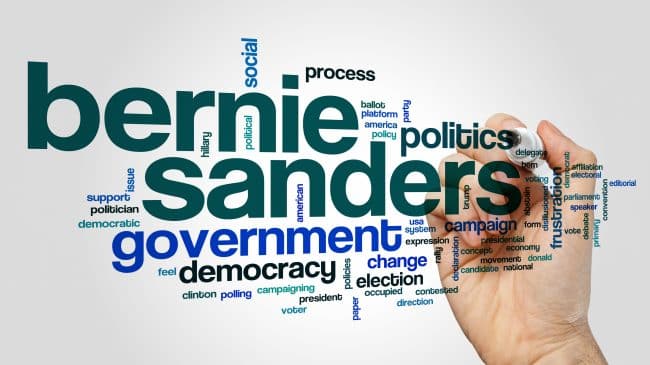With the Democratic Party’s 2020 presidential race and debates in full swing, it’s a good time to examine some of the claims surrounding democratic socialism. One of the candidates in the top tier, Sen. Bernie Sanders (I-VT), for example, is calling for a number of major spending programs and reforms, including Medicare-for-All, tuition-free college, ‘fair’ trade agreements, and a moratorium on public funds for charter schools.
Most countries with universal health coverage rely to some degree on private health insurance. In fact, no country in the world has a system without co-pays or deductibles as described by Sen. Sanders’ Medicare-for-Al health care proposal.
It is simply not possible to pay for Sen. Sanders’ health care proposals by only raising taxes on the wealthy. And a survey conducted by the Kaiser Family Foundation suggests that Medicare-For-All loses 23 percent of its public support if respondents are told it will require tax increases.
When questioned about the fiscal feasibility of his proposals, Sanders is quick to point to European countries as examples of democratic socialism in action. However, a closer look at European systems presents a picture that doesn’t align fully with Sen. Sanders’ democratic socialism.
“I know that some people in the US associate the Nordic model with some sort of socialism. Therefore, I would like to make one thing clear,” the Danish Prime Minister, Lars Løkke Rasmussen, said in 2015. “Denmark is far from a socialist planned economy. Denmark is a market economy.”
A recent report from JP Morgan Chase found that Nordic countries generally have “greater business freedoms, freer trade, more oligopolies and less of an impact on competition from state control over the economy.”
But Sen. Sanders is right to suggest European countries do have higher taxes and tend to have more generous social programs. Sen. Sanders notes that many in the U.S. claim they would be willing to pay “a little more in taxes” to receive the benefits of universal healthcare, free education, and greater income transfers, but the evidence suggests we’d all be paying a lot more in taxes to pay for ‘free’ college and universal health care.
While Sanders and others claim the burden of new taxes needed to pay for such programs would fall mostly on the wealthy, the European model tends to burden middle-class taxpayers. Lower- and middle-income taxpayers in Europe pay an average marginal wage tax of 49 percent on annual income above $37,000 on top of paying an average 20 percent value-added tax. Compare that to a U.S. marginal wage tax of 32 percent on the same income group and a six percent sales tax, on average.
Supporters of Sen. Sanders point to a recent Gallup survey that found 43 percent of Americans said some form of socialism would be a good thing for the country—up from 25 percent in 1942. Other polls found less change, with American Enterprise Institute’s Karlyn Bowman writing at Forbes that, “In the polls that compare the two ideologies, capitalism is viewed more favorably than socialism.”
Another Gallup finding is cause for some optimism about small government, choice, and competition. Large majorities of Americans tell Gallup they favor the free market over government control when it comes to technological innovation, the distribution of wealth, wages, higher education, health care, and the overall economy. The only areas where respondents said they preferred the government to take responsibilities were online privacy and environmental protection.
As Sen. Bernie Sanders and other Democratic candidates call for costly government programs and compete for primary votes against more centrist Democratic candidates, like former Vice President Joe Biden, we’ll learn what these Democratic primary voters actually prioritize and want. Ultimately, if voters want better health care, higher quality education, and increased wages, free-market capitalism and a fiscally-responsible government is the best path forward.

